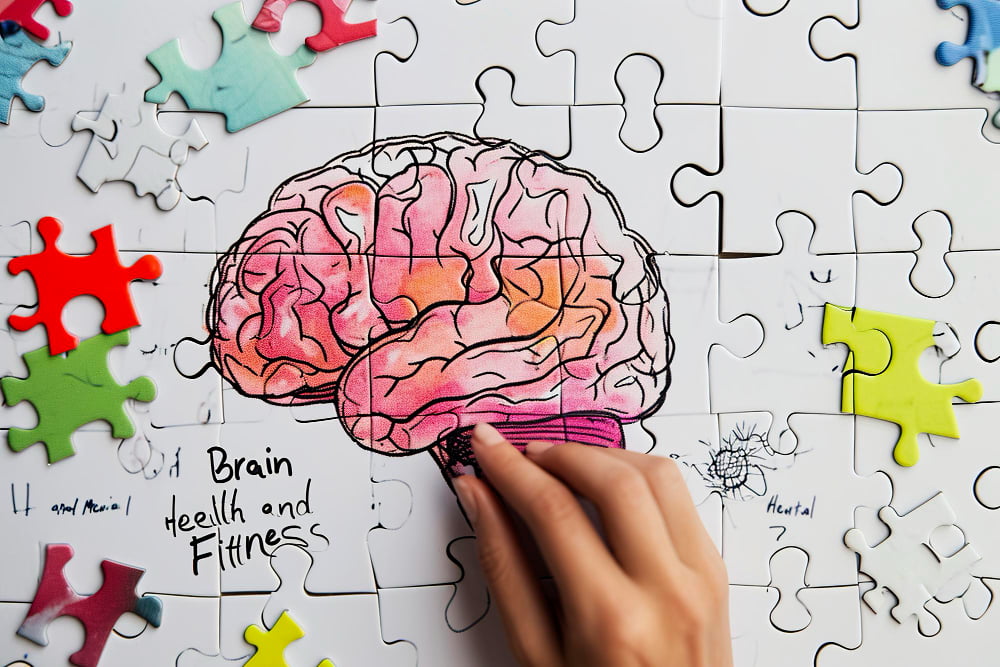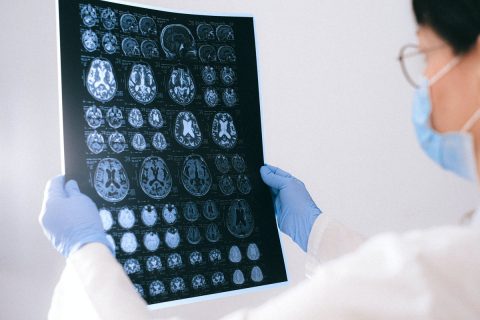Maintaining mental sharpness is just as important as staying physically fit in today’s fast-paced world. You’ve probably heard about the benefits of brain workouts, but what exactly are they, and how can they help you? This article will dive into brain workouts, their benefits, and practical ways to incorporate them into your daily routine.
What Are Brain Workouts?
Brain workouts refer to activities designed to stimulate and challenge your mind. Just as physical exercise strengthens your body, brain workouts help improve cognitive function by promoting mental agility and resilience. These activities can range from puzzles and games to learning new skills or even engaging in mindful practices like meditation.
The idea behind brain workouts is to keep your mind active and engaged, which is crucial for maintaining cognitive health, particularly as we age. According to National Institute of Aging experts, regularly engaging in mentally stimulating activities can help improve memory, problem-solving skills, and overall brain function. While it’s natural for cognitive abilities to slow down with age, brain workouts can delay this process and keep your mind sharp for longer.
How Does a Brain Workout Help?
A brain workout offer several key benefits for cognitive health. Let’s explore how they help in detail:
1. Improving Memory and Recall
Brain exercises, such as memory games or word puzzles, can help enhance information recall. These activities encourage storing information in your short-term memory and retrieving it when needed, strengthening your overall memory function.
2. Boosting Attention and Concentration
Activities like Sudoku, crosswords, or even learning a new language require focus and concentration. By engaging in tasks that demand sustained attention, you train your brain to concentrate for longer periods, which can improve your ability to stay focused in other areas of your life.
3. Enhancing Problem-Solving Skills
A brain workout, such as strategy games or logic puzzles, challenge you to think critically and solve complex problems. This enhances your brain’s problem-solving capabilities, helping you approach real-life situations more clearly and creatively.
4. Reducing Cognitive Decline
Studies suggest that a brain workout can help reduce the risk of age-related cognitive decline, including conditions like dementia and Alzheimer’s disease. According to the Alzheimer’s Association, engaging in mentally stimulating activities throughout life can create a cognitive reserve that helps delay the onset of dementia symptoms.
5. Boosting Emotional Resilience
A brain workout isn’t just about intellectual growth—they also improve emotional well-being. Mindfulness exercises, such as meditation or deep breathing techniques, can help reduce stress and anxiety. These practices promote emotional resilience by effectively helping you manage negative thoughts and feelings.

The Science Behind Brain Workouts
The human brain is incredibly adaptable and capable of forming new neural connections through a process known as neuroplasticity. A brain workout play a vital role in this process. By engaging in challenging mental activities, you stimulate neuroplasticity, which allows your brain to reorganise itself and form new pathways.
The National Institutes of Health (NIH) supports the concept of “use it or lose it,” suggesting that mental exercises help maintain and even improve cognitive function by keeping the brain engaged and active. In fact, a study published in Healthline showed that individuals who participated in regular cognitive training exhibited better memory, reasoning, and processing speed than those who did not.
Types of Brain Workouts
There are a variety of brain workouts that you can incorporate into your daily routine. Here’s a list of some popular and effective options:
1. Puzzles and Games
- Crosswords: Improve vocabulary, memory, and word retrieval.
- Sudoku: Enhances logical thinking and problem-solving.
- Jigsaw puzzles: Encourages visual-spatial reasoning.
- Strategy games: Stimulate critical thinking and planning skills.
2. Learning New Skills
- Languages: Learning a new language boosts memory, attention, and multitasking.
- Musical instruments: Playing an instrument engages multiple areas of the brain, improving coordination, memory, and auditory skills.
- Creative arts: Drawing, painting, or crafting can improve focus, attention, and cognitive flexibility.
3. Memory Games
- Try memory cards or apps designed to enhance your ability to recall and retain information.
- Use daily memory challenges, such as recalling grocery lists or phone numbers, to test your short-term memory.
4. Physical Exercise for the Brain
- Aerobic exercise: Physical activity that gets your heart pumping also improves brain function by increasing blood flow to the brain.
- Yoga and meditation: These mindfulness practices reduce stress, improve focus, and promote emotional well-being.
5. Social Interaction
- Engaging in meaningful conversations or social activities can boost cognitive abilities and emotional health. Social interaction helps stimulate multiple areas of the brain, enhancing memory, language, and emotional regulation.
How Often Should You Do Brain Workouts?
Like any form of exercise, consistency is key. You don’t need to spend hours each day on a brain workout, but integrating them regularly into your life can make a significant difference. Ideally, you should aim for at least 20-30 minutes of mental exercise daily. Whether it’s solving puzzles, learning something new, or practising mindfulness, the goal is to keep your brain active and engaged.
If you’re just starting, try incorporating short bursts of a brain workout into your day. For example:
- Play a quick word game during your lunch break.
- Spend 10 minutes learning a few phrases in a new language in the morning.
- Solve a Sudoku puzzle before bed.
The more you practice, the stronger your brain becomes.
Brain Workouts for Different Age Groups
Brain workouts can be tailored to all age groups, from children to older adults. Here’s how different age groups can benefit:
Children and Teens
- Early brain development is critical; a brain workout help improve problem-solving, attention, and memory.
- Games like chess, maths puzzles, or learning an instrument can significantly enhance cognitive growth.
Adults
- For adults, a brain workout can help maintain cognitive sharpness, reduce stress, and improve focus, which are crucial for personal and professional development.
- Learning new skills or participating in mentally stimulating hobbies (e.g., reading, cooking new recipes) help promote brain health.
Older Adults
- As we age, a brain workout can help delay the onset of cognitive decline and dementia.
- Simple activities like memory games, puzzles, or social interactions can greatly improve mental engagement and sharpness.
Conclusion: Keep Your Mind Sharp with a Brain Workout
Incorporating a brain workout into your daily routine is a fun and effective way to keep your mind sharp, improve memory, and boost emotional well-being. Whether solving a crossword, learning a new language, or engaging in social conversations, every activity builds a healthier, more resilient brain.
By keeping your brain active, you’re investing in your cognitive health for the future. So why not start today? Pick up a puzzle, learn something new, or challenge yourself with a strategy game—the possibilities are endless, and the benefits are immense.
Remember, it’s never too early to start working out your brain! Also, don’t forget to download the Ivory App for daily brain workouts.
A: Brain workouts are activities designed to stimulate and challenge your brain. These include puzzles, memory games, new skills, and mindfulness exercises. The goal is to improve mental agility, memory, and overall cognitive health.
A: Brain workouts help slow down cognitive decline associated with ageing. Keeping the mind active enhances memory, improves focus, and may reduce the risk of conditions like dementia and Alzheimer’s disease.
A: Ideally, you should engage in brain workouts for at least 20-30 minutes daily. Short and consistent mental exercises, such as solving puzzles or learning a new skill, can yield significant cognitive benefits over time.
A: While brain workouts cannot completely prevent dementia or Alzheimer’s disease, research suggests they can delay the onset of symptoms. Engaging in mentally stimulating activities creates a cognitive reserve that helps protect against cognitive decline.
A: Brain workouts include puzzles (e.g., crosswords, Sudoku), memory games, learning new languages, playing musical instruments, strategy games, and even physical exercises like yoga and meditation that promote mindfulness and focus.
A: No, brain workouts benefit all age groups. For children and teens, they enhance cognitive development, while for adults, they improve memory, attention, and emotional resilience. Older adults can particularly benefit from brain workouts to maintain cognitive sharpness and delay cognitive decline.
A: Brain workouts are generally safe and beneficial for everyone. The key is to avoid overexertion. If an activity becomes frustrating or stressful, it’s important to take breaks or try a different exercise. The goal is to stimulate the brain, not to cause mental fatigue.
A: Yes, physical exercise like aerobic activities can significantly benefit brain health by increasing blood flow to the brain. Regular physical activity can improve memory, mood, and cognitive function, making it an important complement to brain workouts.
A: You can easily integrate brain workouts into your daily routine by setting aside 20-30 minutes for activities like solving a puzzle, playing a memory game, or practising mindfulness exercises. Learning something new during your commute or lunch break can be a simple yet effective brain workout.
A: Yes, brain workouts such as mindfulness exercises and meditation can help reduce stress and anxiety, improve focus, and enhance emotional resilience. Engaging in activities that promote mental calm and clarity contributes to overall emotional well-being.



